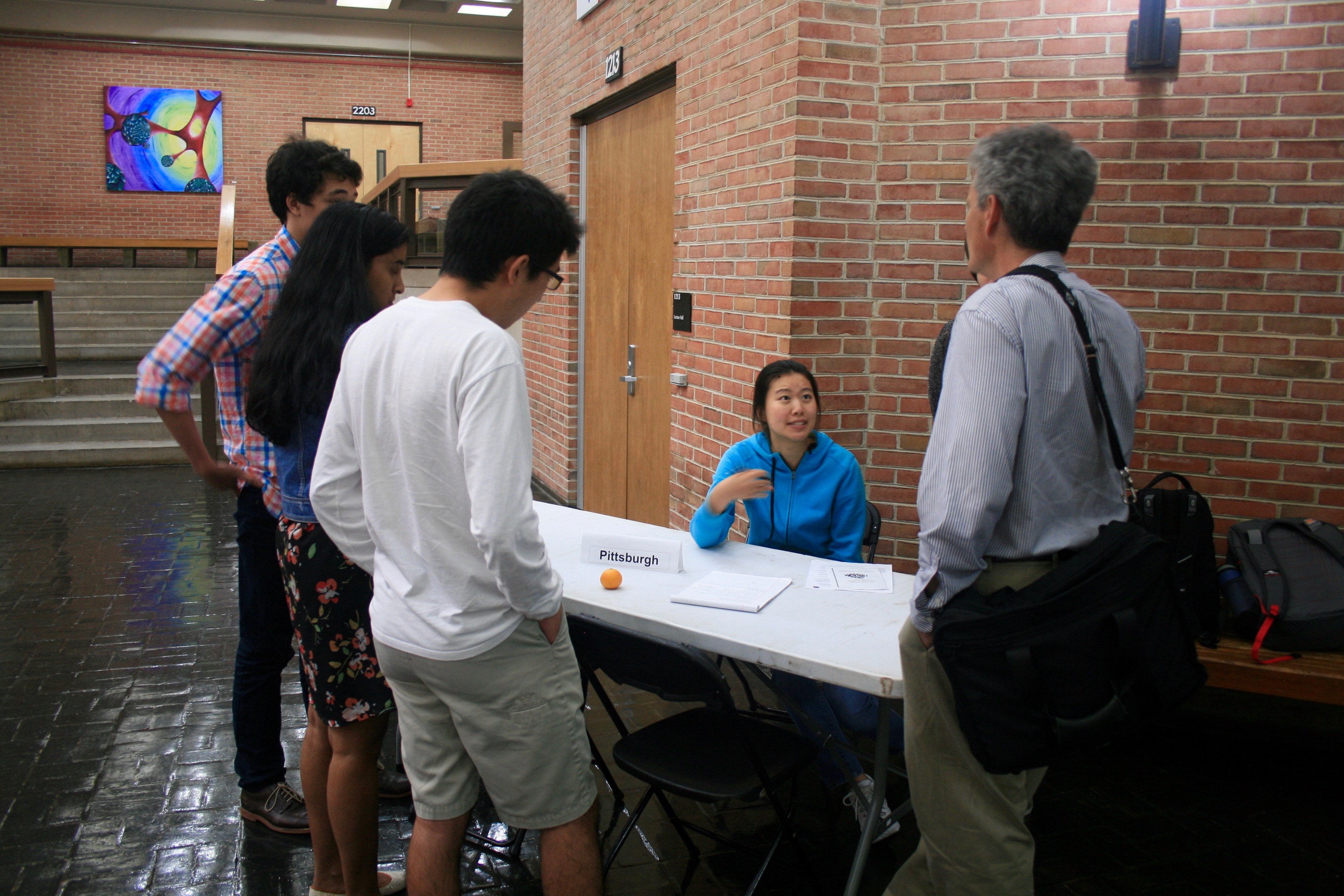| Line 93: | Line 93: | ||
<div style="max-width:1000px; margin:0 auto; padding:10px 10px;"> | <div style="max-width:1000px; margin:0 auto; padding:10px 10px;"> | ||
<div class="table column full_size"> | <div class="table column full_size"> | ||
| − | <h2 | + | <h2 style="color:rgb(0.0.128)">Contents</h2> |
<ul class="table"> | <ul class="table"> | ||
<li><a href="#WM" class="table">William and Mary</a></li> | <li><a href="#WM" class="table">William and Mary</a></li> | ||
Revision as of 15:55, 2 August 2016
Contact Us
Mid-Atlantic Meet-Up
On July 22, Claire, Praneeth, and Maya visited the University of Maryland to participate in the Second Annual Mid-Atlantic iGEM Conference. They had a great time meeting fellow iGEM'ers, learning about other teams' projects, and discussing synthetic biology. They also explored College Park and the National Portrait Gallery in Washington D.C. with members of the UMaryland team. Thanks to the UMaryland team for organizing such a great event and for being awesome hosts! Take a look at our presentation slides here.
Back to TopSharing and collaboration are core values of iGEM. We encourage you to reach out and work with other teams on difficult problems that you can more easily solve together.
Which other teams can we work with?
You can work with any other team in the competition, including software, hardware, high school and other tracks. You can also work with non-iGEM research groups, but they do not count towards the iGEM team collaboration silver medal criterion.
In order to meet the silver medal criteria on helping another team, you must complete this page and detail the nature of your collaboration with another iGEM team.
Here are some suggestions for projects you could work on with other teams:
- Improve the function of another team's BioBrick Part or Device
- Characterize another team's part
- Debug a construct
- Model or simulating another team's system
- Test another team's software
- Help build and test another team's hardware project
- Mentor a high-school team

















